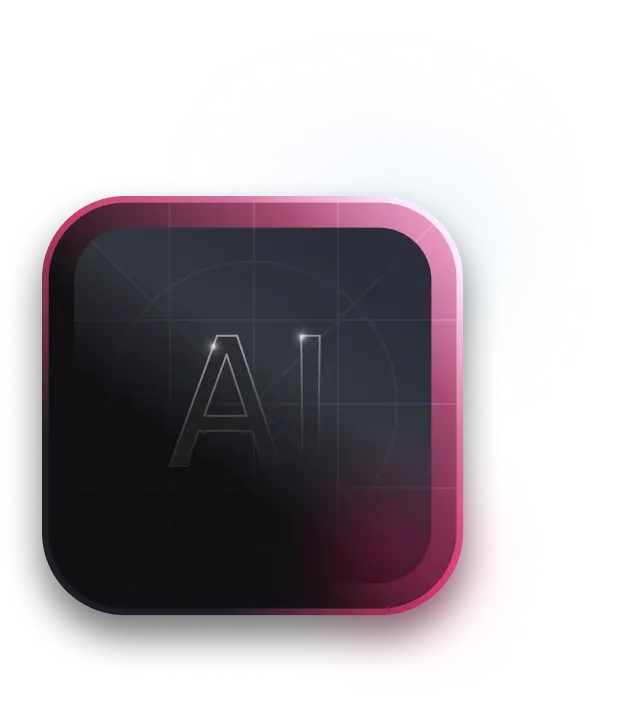It is no news that artificial intelligence is everywhere, seeping into industries and niches with its benefits of automation, real-time processing, and infusion of smart capacities into every other process, device, etc. And the increasingly digitized sector of construction is far from being an exception.
Today, a huge part of global multi-trillion(!) investments directed at this industry goes to technological development and digital innovations that form an up-to-date, sturdy foundation for high-performance, in-depth productive, and highly profitable construction sites.
When it comes to the implementation of artificial intelligence in construction, different providers find different approaches to empowering various critical and routine processes with AI. This is why we are taking a look at exactly such tendencies and global direction to see the AI-powered landscape of the years to come clearer.
What Is an AI Solution?
Artificial intelligence may manifest in a range of digital formats - it can be put at the core of both the simplest algorithm for simple automation tasks and a complex self-learning platform with multi-faceted features. The technology’s standing-out ability to initiate human-like cognitive functions in virtual environments is “packed” into specific tools, digital features, and other solutions.
If we get technical, autonomous AI-enabled production lines today are widely managed by self-regulating systems that initiate proper system responses based on a range of readings and processing criteria.
In common practice, AI automation is implemented across a variety of production, maintenance, and management tasks.
Learn the best practices and tips for creating a construction app
AI in the Construction Industry - Where Does It Fit?
AI becomes more than just a program when it is implemented on a proper level - rather, it turns into an autonomous smart assistant that can take care of crucial construction business benefits and aspects, including:
- Budget, funding, and blueprints creation management;
- Automated machinery and hardware controls;
- Production safety and precision;
- Communication and interaction management;
- Multi-faceted project planning, and much more
To take a glimpse at saw raw numbers, spending of software for construction management peaked at a growth CAGR of 34.1% in 2022, going over $1.5 billion in total and expected to increase to $2.3 billion by 2028, according to Allied Market Research.
But let’s take a more detailed look at some of the major applications of AI in the construction industry.
AI in construction planning
AI can take part in an essential part of construction - project planning. To automate and streamline construction project roadmapping, you just need to feed enough data to your construction AI.
For a real-world instance, an AI-powered digital mapping services provider that puts a lot of emphasis on construction projects, AirWorks uses drones to create life-size 3D models in cyberspace and then hands them over to AI, which checks to see if there are any issues or if they are running behind schedule. This adds an extra layer of project roadmap detail and risk assessment.
However, when it comes to a multi-faceted implementation of AI in construction planning, the scope of applications and benefits is pretty extensive, including:
- Autonomous hardware and software performance monitoring with real-time alerts saves your maintenance specialists tons of time;
- Expensive human-factor errors can be prevented through smart planning and automation of routine tasks and functions;
- Risks can be efficiently mitigated and potential hazards avoided by feeding the AI historical data related to errors and their impacts for comparable predictions;
- Smart workflow is an innovative strategy that minimizes performance bottlenecks and gives you a tech-driven competitive edge.
Our AI and Data Science Case Studies

AI in construction safety
Human life is the most precious thing in the world, and it must be protected via all available means. AI can empower up-to-date safety measurements and certainly improve the lives of employees on construction sites. A range of smart solutions can be integrated with the workflow, but, again, your main task would be to provide your AI with a sufficient amount of construction safety-focused data.
For instance, construction-focused workflow smart digitization platforms like Kwant offers advanced AI integrations for timely hazard prevention through in-depth predictive analytics. Across progressively equipped building sites today, such advanced solutions are connected to helmet cameras for real-time hazard scanning, predictive analysis, and alerting.

All this advanced functionality of AI in construction results in a bunch of benefits, like:
- Smart, detailed visualization for higher convenience of construction employees;
- Real-time notifications and alerts based on predictive analytics outcomes save lives on-site;
- Health and safety management is ultimately automated and streamlined through visualization, monitoring, notification, and timely action-taking.
AI in construction scheduling
Dynamic scheduling is crucial to the successful outcome of any construction project, and an AI tool is a failproof solution to manage schedules like a clock. For instance, a custom smart tasking interface can be used to create tasks, automatically distribute them by groups of users, and sync their deadlines with the assigned users’ calendars.
This can be a perfect solution for an all-in-one platform with a centralized digital construction management workflow. AI in construction scheduling can help streamline both overall management and on-site performance, resulting in:
- Simple and fast yet efficient, centralized tasking, scheduling, and tracking;
- Precisely planned workflow with clear deadlines that stimulate overall productivity;
- Accessibility of work organization that allows specialists to focus on crucial job aspects
Automation across aspects
We cannot stop emphasizing the automation of various tasks by artificial intelligence in construction. There are numerous facets where your usual workflow can be automated. Take budgeting, for example. AI helps you to forget about budget overruns and miscalculations, turning budget management automation into a direct cost-saving approach.
Going deeper and wider, surely, all sorts of construction equipment can be automated and consolidated as well. Bulldozers, excavators, construction cranes, etc., can be if not fully controlled by the AI, then at least tracked, managed, and partially maintained (i.e., sensors can be installed on pieces of hardware to track their field condition then to consolidate this data in a centralized smart IoT network).
In the long run, extensive automation gives us:
- Higher productivity due to smoother running processes and managerial tasks;
- Cost savings based on time cuts and human error optimization;
- Improved user experience that is simple to introduce to new employees;
- Tons of relevant internal data gathered along the way for further business analytics
AI-based designs
Humanity has been using neural networks for a lot of interesting artsy stuff lately. The simplest (well, relatively) neural network algorithms available openly today create art pieces of exquisite quality and amazing outline. And a bit more complex solutions excel all the more at the composition of more precise, formal, technical images.
These capacities can be used to create blueprints and highly detailed project outlines that normally take ages for live specialists to design. As a real-world example, a company called Zaha Hadid Architects employs the powers of AI to craft award-winning architectural designs and plans for some of the most striking construction projects of our time.

All in all, with AI-based construction design, we get the following:
- AI-based designs form a progressive-minded approach to one’s project planning where practicality, technological edge, and resource optimization are the top priorities;
- Huge chunks of senseless work can be automated, accelerated, or altogether skipped;
- AI helps manufacturers and service providers never to run out of project ideas and options.
Let’s build custom software solutions for your business
Challenges of Employing Artificial Intelligence Construction
Surely, to every side, there is a flip side. For the use of artificial intelligence in the construction industry, it manifests in several challenges.
Extra costs
The price of adopting a truly business-pushing AI solution remains the first and foremost challenge. Small companies cannot afford its full-scale adoption, which is why it is so important to turn to an individually-focused digital service provider.
AI maintenance
Proper AI integration, deployment, and performance can only be achieved with the help of profiled specialists. Keep in mind that even complex AI-enabled solutions cannot be fully self-sufficient, requiring reliable professionals at hand.
Lack of creativity
Even though modern neural networks have taken a leap forward in terms of the imitation of a creative human mind, smart systems still lack the creativity that can be applied in work. You cannot depend on AI in the full blueprint completion, for instance.
How AI-Enabled Construction Looks
Among tons of other professional construction aspects, AI in management, budgeting, and scheduling results in the drastically reduced paperwork headache, speeds things up, and ties workflows in a smart way. Working sites gradually become much safer places, with the introduction of visual guidance for workers, improved AR-powered warning systems and whatnot. Ultimately, the amount of hard yet potentially senseless work put on people becomes the stuff of the past.
Conclusion
Artificial Intelligence in construction is something that is here and today, knocking on your door most earnestly if you haven’t yet employed it while working in either construction or agriculture industry (these two being the most commonly digitized and AI-enabled lately).
A whole collection of obvious benefits put against a bunch of challenges that can be overcome with a reliable specialist by your side make AI adoption a must for your construction workflow. Be it a separate project or a full-on construction business infrastructure, Requestum has seasoned professionals who can become just that specialist for you.
Contact our AI development team to discuss your project today.

Our team is dedicated to delivering high-quality services and achieving results that exceed clients' expectations. Let’s discuss how we can help your business succeed.


SHARE: